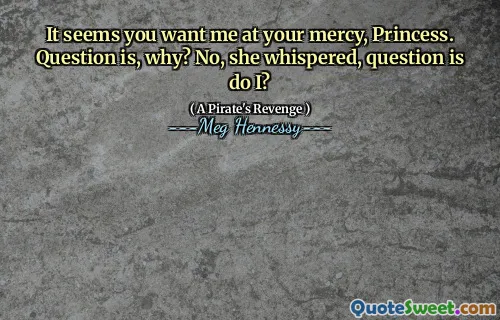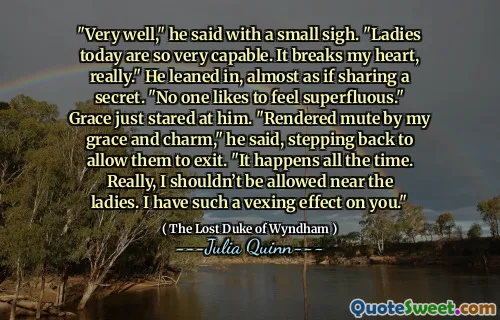
It seems you want me at your mercy, Princess. Question is, why? No, she whispered, question is do I?
This quote encapsulates a powerful moment of psychological and emotional intrigue between two characters, where the dynamics of power, vulnerability, and control are sharply brought into focus. The initial statement suggests a dominance-submission relationship, with one character feeling that the other is trying to exert control or influence over them. However, the whispered retort flips this perception on its head, revealing a deep introspection and ambiguity about who actually holds the power in the situation. This exchange challenges common assumptions about control and victimhood. It points to the complexity of human relationships where appearances can be deceiving, and who is "at mercy" may not be as clear-cut as it initially seems. The whispered nature of the response adds a layer of intimacy and secrecy, emphasizing that this is not a straightforward confrontation but a nuanced moment of self-awareness and challenge. From a broader perspective, the quote invites reflection on themes such as autonomy, strength, and the subtle negotiations that underpin personal interactions, especially in emotionally charged or hierarchical contexts. It provokes us to consider how often we perceive ourselves and others in roles defined by weakness or dominance, without questioning the fluidity of these roles or the underlying realities that might contradict surface appearances. Ultimately, it serves as a reminder of the complexity of human will and the multifaceted nature of relationships, encouraging readers to look beyond face value and explore deeper motivations and emotions.





